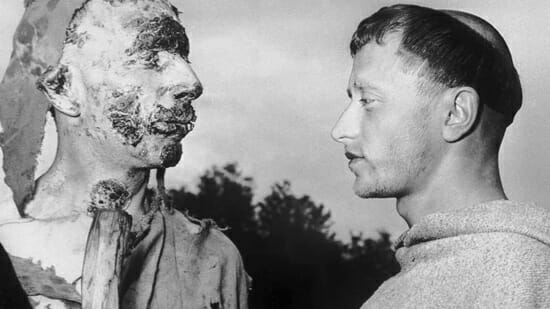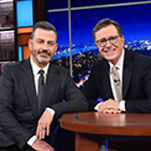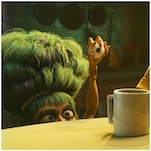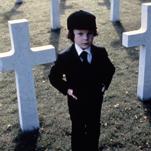The Flowers of St. Francis Explores the Whimsical Naivety of Doing Good
Rossellini's homage to the saint turns 70.
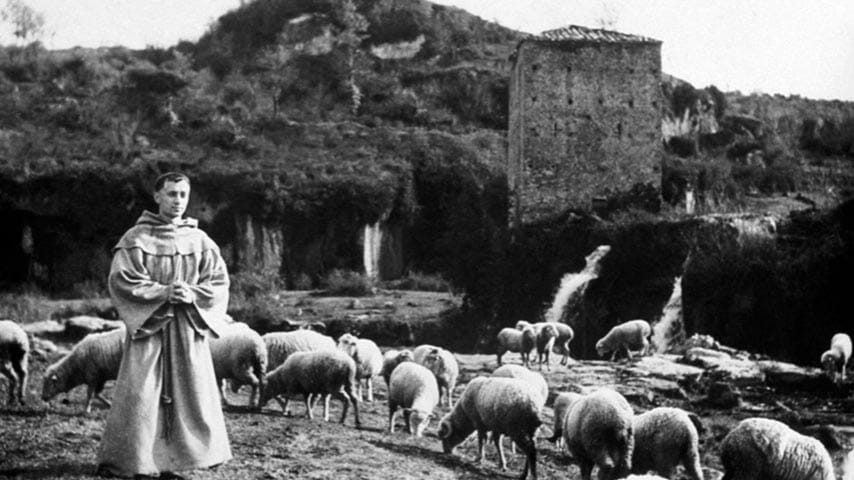
Lepers go uncared for. The mighty stomp around in their armor bullying the weak and laying siege to the innocent. Those who have scorn those who have not. No matter how many times you give somebody the clothes off your back, there is always someone else out there who still needs them.
Faced with that, what wise person would ever argue that we should bother to do good? And how can a do-gooder who grasps the gravity of trying to make the world a better place do it with any humor? Roberto Rossellini’s deeply spiritual The Flowers of St. Francis makes this its central conceit. At 70, the neorealist Italian film gets by on the simplest of premises—and the most straightforward of performances—as it contemplates the enormity of being a humble servant in a tough world.
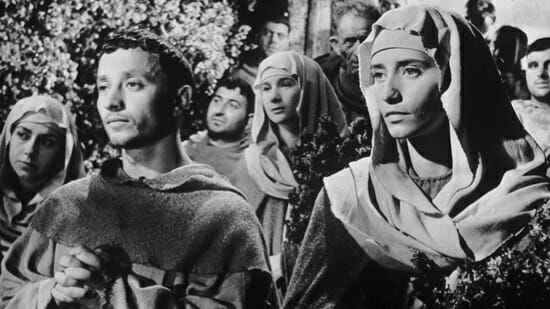
The movie unfolds as a series of short episodes, selected from stories about St. Francis (Nazario Gerardi) taken from the novel of the same name and another about the film’s other principal character (played by Severino Pisacane), The Life of Brother Ginepro. The stories deal with St. Francis of Assisi’s early days and the painfully earnest disciples who don’t lack heart even when they sometimes lack common sense. That Rossellini used a group of actual Franciscan monks as his amateur actors adds a degree of sincerity to the proceedings that either makes or breaks the film, depending on your perspective. (Having met my fair share of the painfully earnest foot-washers of the world who toil in obscurity, I think it rings true.)
Gerardi, who went uncredited and was among the other amateur actors in the movie, plays Francis of Assisi as a quiet, patient man openly bemused by all his followers, but by Ginepro in particular. While his philosophy is clearly the point of the film, the movie’s clearer protagonist at times is Ginepro, who can’t say no to any soul who stumbles across his path—to the point that he frequently returns to the church naked because he’s given some wandering beggar the clothes off his back.
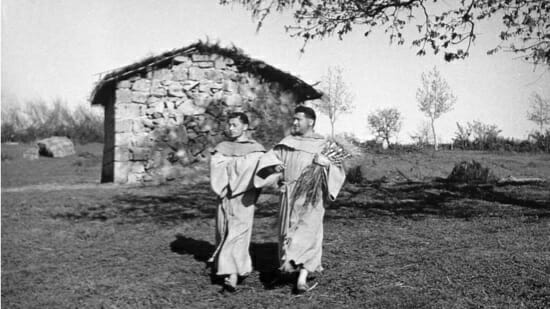
Each of the stories the movie adapts takes a look at another aspect of Francis’ matter-of-fact dedication to selflessness and preaching peace, or how his disciples interpret that mission.
Ginepro’s silliness is the catalyst for several funny moments in the film. Faced with a brother monk who is fasting himself nearly to death but who admits he wouldn’t say no to a pig’s foot, Ginepro goes and asks a pig if he’ll be so kind as to provide. The farmer whose pig receives this honor is obviously angry about it, but it results in him dumping his now-dead pig at the monks’ feet, angrily. Later, Ginepro and another feeble old monk reason that if they cook all the food at the church at once, it’ll make enough to feed everybody for two weeks (not remembering, perhaps, that it won’t keep for that long).
Francis meets these unexpected kindnesses (and their easily foreseen consequences) with good humor in all cases, at one point ordering Ginepro to sally forth and preach peace, but always to begin by leading by example with some tough words of truth: “I talk and talk but accomplish little.”
This predictably leads the young monk into trouble. The most complex chapter in the movie sees Ginepro wandering into the camp of the warlord Nicolaio (Aldo Fabrizi, one of the few professional actors in the film, who came into some renown after the role). The crowd of bandits and mercs toss Ginepro around like a sack of beans, drag him around the camp by his ankles, and generally beat the crap out of him.
But the camp’s preacher knows Francis and sticks up for his wayward disciple. Ginepro is brought before Nicolaio, who is dressed in what has to be the most ridiculous suit of armor in film history: a massive kettle of iron with a huge bucket-headed helm on top, so heavy and enormous that it must be suspended from chains just to keep Nicolaio from falling over. In a film where the heroes armor themselves with burlap and tonsure, it’s fitting that the villain’s steel is made to look so hyperbolically stupid.
-

-

-

-

-

-

-

-

-

-

-

-

-

-

-

-

-

-

-

-

-

-

-

-

-

-

-

-

-

-

-

-

-

-

-

-

-

-

-

-

